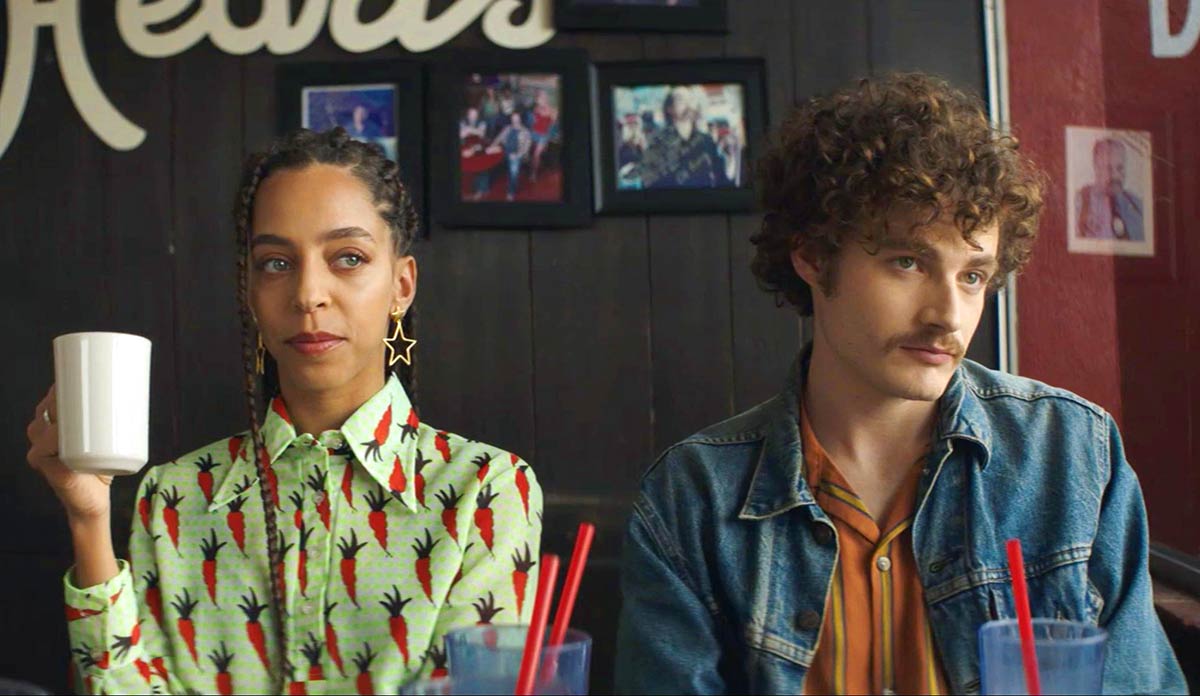Filmmaker Hannah Marks’ “Mark, Mary, & Some Other People” has a lot of ground to cover in its 90 minutes, so it hits the ground at full speed, with its (first) two title characters, reconnecting, dating, and marrying by the end of the opening credit sequence. It’s a brief courtship, but credibly so; Mark (Ben Rosenfield) and Mary (Hayley Law) have charisma and chemistry to spare and a lot in common besides. They’re both young; they’re both hot; they’re both barely making ends meet while dreaming of better things (“I also clean houses!” “I also walk dogs!”).
READ MORE: 2021 Tribeca Film Festival Preview: 15 Must-See Films To Watch & More
This is one of the most refreshing elements of Marks’ script. Most romantic comedies end with the Happily Ever After; this one knows that Happily Ever After is hard as hell, and that’s where the real stories are to be found. Mark and Mary soon realize that being young and married isn’t as easy as it sounds — “It makes me feel adult… in a way I don’t… want to be?” she muses. And thus, she asks the question (preceded by giant, block text of “THE QUESTION” on screen): “Would you ever consider an open thing?”
READ MORE: Summer 2021 Preview: Over 50 Movies To Watch
And thus you have the real subject of “Mark, Mary, & Some Other People”; those other people are active players as well, though after a fair amount of haggling and question and rule-making. “Life is short; it’s exciting!” Mary explains. “Monogamy is dumb when you think about it.” But, in a neat twist to how these things are usually dramatized, it’s not just that the open marriage is Mary’s (enthusiastic) idea — Mark is initially resistant to it, insecure and uncertain about what she explains is called, per her Googling, “Ethical non-monogamy.”
READ MORE: The 100 Most Anticipated Films Of 2021
“You’re already Googling?” he exclaims.
This middle stretch is the picture’s sharpest, as the pair carefully set their boundaries (no exes, limited encounters with the same person, safe sex only, etc.) of their little arrangement, which they agree will be a “trial run only.” And initially, it goes very well because they are (as mentioned) both young and both hot; they even find their separate adventures a bit of a turn-on, advising each other on their dating profiles and sharing their little stories. Aside from the usual tired cinematic double standards about which versions of bisexuality are leer-worthy, the picture is good-natured and open-minded about sex while acknowledging its unavoidable awkwardness and emotional complexity.
READ MORE: The 25 Best Films Of 2020
Much of the film’s success in those stretches come from the leads, who skillfully avoid the potential clichés of their characters to make them singular and interesting. (On the other hand, the two biggest names in the picture, Lea Thompson and Gillian Jacobs are wasted in brief, throwaway roles.) Marks exhibits a wry sensibility and a gift for witty dialogue, even if the early scenes seem a bit too intoxicated by their own cleverness.
It’s so fresh and so funny in its first hour or so, in fact, that it’s a real bummer to watch it all fall to pieces in the home stretch, with a pivot into drama that’s too much, too fast — and, more importantly, too much of things we’ve seen before. Rosenfeld and Law are charming leads, funky and funny, so it’s just a drag to watch them weeping and wailing and spouting Serious Relationship Movie dialogue. What’s worse, it’s altogether certain where this thing is going, especially if you’ve seen the few cinematic explorations of open relationships that have preceded it. Most strangely, these movies always turn into Hays Code throwbacks — apparently, to this day, if you experience carnal pleasure, if you commit the “sin” of adultery, you have to pay for it.
That’s a shame because Rosenfeld and Law are terrific, Marks can put a funny sequence together, and for a good long while, “Mark, Mary, & Some Other People” clicks right along. And then it just doesn’t. [C+]
Follow along with all our 2021 Tribeca Film Festival coverage here.





